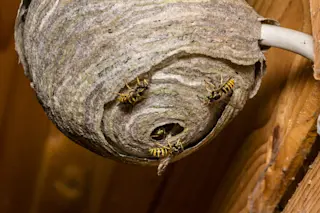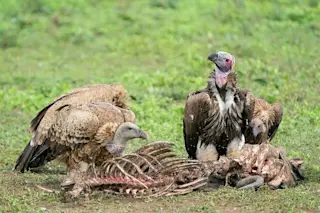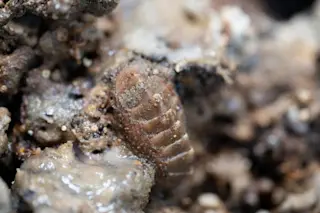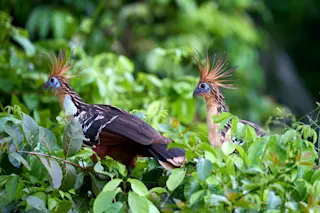Many diseases--rabies, Lyme, plague, and others--spread from animal hosts to humans. But not much attention is given to diseases that humans pass to animals. And it seems that animals living in the remotest parts of the world aren’t immune to human-borne infections. Bjorn Olsen, a physician specializing in infectious diseases, and microbiologist Sven Bergström, both of Umeå University in Sweden, have discovered a small outbreak of salmonella among the penguins of Bird Island in the South Atlantic.
The island is home to hundreds of thousands of penguins, albatrosses, and fur seals. Olsen and Bergström were there investigating the spread of Lyme-disease-bearing ticks among Antarctic seabirds. They collected fecal samples and tens of thousands of ticks from 35 gentoo penguins and about 60 small short-billed birds called macaroni penguins. The researchers then took their refrigerated samples back to Umeå and analyzed them. Although they haven’t yet found any evidence of Lyme from the ticks, they did find signs of salmonella infection in the feces.
Salmonella enteritidis, a bacterium that lives mainly in chicken oviducts, often infects humans who eat undercooked eggs.
Only one of the fecal samples--from a gentoo--was infected with S. enteritidis. But as Olsen points out, it is quite probable that the bacteria were present in other samples but died during the two-week journey back to Sweden.
The very rarity of the disease among the birds, says Olsen, indicates that S. enteritidis is not endemic to the penguins and was most likely introduced from outside--by humans. Genetic studies of the bacteria revealed a unique DNA pattern unmatched by salmonella samples isolated from Europe, North Africa, and South America. Thus the researchers are unsure as to the origin of the sub-Antarctic outbreak and the route by which it arrived. They suspect that sewage dumped from passing ships or scientists may be one source; alternatively, albatrosses that forage for waste- contaminated squid in the oceans surrounding South America may have brought S. enteritidis to Bird Island.
Either way, they say, it’s bad news for the penguins. There are strong similarities between a penguin colony and a poultry colony--they live very close to each other, so they are extremely vulnerable to any sort of pathogen that comes in, says Olsen. We don’t know exactly how the bacteria behave in penguins, but if the mode of action is similar to that in poultry, the bacteria can be latent for a very long time, then all of a sudden become infectious and pathogenic and kill the chicks.














